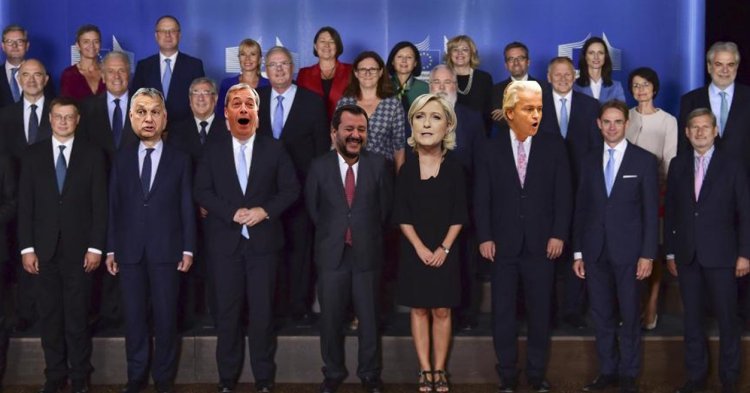In 2016, the United States and Romania both saw government appointees that can only be described as counter-intuitive. In the United States, Scott Pruitt, longtime critic of the Environmental Protection Agency, was tapped to lead it. Ben Carson, a surgeon, was named Secretary of Housing and Urban Development. Rick Perry found out that the Department of Energy, which he was to lead, managed the nuclear bombs.
In Romania, a philosopher and then an economist, both with no previous connection to the army, were put atop of the armed forces. Meanwhile, the numerous ministers of justice that came one after the other – although appropriately educated, this time – had a track record as being the most ferocious enemies of the rule of law, being chosen exactly for that reason. And so, the logic of governmental appointments was turned on its head.
When an institution is created, it is to pursue a goal. The American EPA was meant to protect the environment – but under Scott Pruitt and Andrew Wheeler, it was defunded and left without power due to numerous regulatory rollbacks. In Romania of the past years, the Ombudsman only rose from his slumber to protest the fact that his corrupt overlords were being prosecuted, foregoing his office’s declared role of defender of the people.
Upon the founding of the United States, Hamilton, Madison, Jefferson and the other Fathers meant to have the best people in government. The Trumpesque present evidently disappoints. From the opposite side, when looking for the wrong people in government, understood as those without experience in the fields of activity of their institutions and those who openly go against the stated goal of the agencies they lead, the examples abound.
The Anti-Commissioners
So what if the European Commission and the European Parliament were manned by Eurosceptics?
What if the Environment Directorate-General were led by a climate change denier or a representative of the fossil fuels companies? What if the Commissioner in charge of Competition did not believe in the free market, if the Consumer, Health, Agriculture and Food Executive Agency had at its helm someone who only listened to food retailers’ lobbyists; if DG NEAR, the European Neighborhood Policy and Enlargement Negotiations, were headed by someone who frequently issued attacks at the neighbors of the European Union; if the European Research Council Executive Agency argued for its own defunding, if DG Trade pushed for the cutting of trade deals?
What if the President of the European Commission and of the European Parliament intentionally chose inaction and discouraged other members and agencies from enacting changes so as to consciously decrease the importance and powers of the Union as a whole? What if we would have Nigel Farage instead of Juncker, Geert Wilders instead of Gunther Oettinger, Marine Le Pen instead of Federica Mogherini, Matteo Salvini instead of Margrethe Vestager?
A Nightmarish Scenario
Obviously, undoing the work of their predecessors would be the main activity of such commissioners. Not unlike the anti-ministers and secretaries of Romania and the United States, they would set out to push the institutions they head into a dormant inactivity or, even worse, an activist policy of rollbacks that would delegate more and more authority to national governments and the Council. EU law would have at its core a logic that would go against the overarching goals of the Union.
So what should be done in this case? One measure is already in place – subsidiarity. The principle of subsidiarity ensures that the center does not get to dictate to the regional, national or local levels of administration. If Brussels ever turns Eurosceptic, France does not have to follow its every dictum. Neither do the European Court of Justice or the Council of the European Union.
The liberal and democratic order is another stop to Eurosceptic populism and xenophobia – by guaranteeing freedom of speech, the respect for human rights, the sovereignty of the people and the pursuit of the common good, coupled with the federalist component of a constitution, the Union is kept safe from the fleeting passions of both politicians and the masses.
More than anything, the nightmarish scenario painted in this article is a plea for young Europeans to vote. Loss aversion theory argues that people hate losing something more than they enjoy gaining something of equal or even greater value. But we cannot afford to lose freedom of movement now in order to appreciate it later. Neither should we risk peace on the continent, cohesion among nations, EU-created jobs, EU-backed environmental programs, EU structural funds, EU-monitored rule of law, EU-imposed quality standards for goods and produce and many more benefits that the Union brings and that Eurosceptics intentionally ignore.
When you decide whether or not to go vote, imagine a Eurosceptic Commission and Parliament.


Follow the comments: |
|
